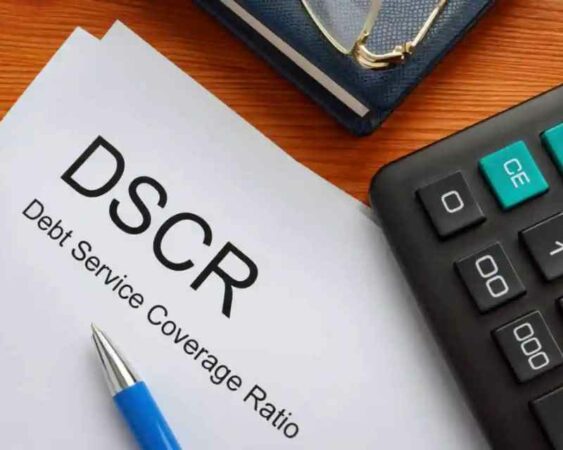
Are you considering getting a loan for your business? Every business needs money. The problem is that money may not be available all the time. In such cases, a business loan can be a good solution. Business purpose loans are a type of financing used by businesses to pay for business expenses.
Below, we explain what business loans are, how they work, the main differences between business loans and personal loans, types, reasons to get a business loan, and factors considered by lenders to approve a business loan.
What Is It?

To put it simply, it is a loan taken out by a business to cover day-to-day operating expenses, pay for business expenses (equipment purchases, inventory purchases, etc.), or to expand into new markets. Companies can get business purpose loans from a bank, a credit union, or an online lender.
The borrowed funds are made available in two forms: a lump sum payment or a line of credit. When a business gets a business loan, it must repay its lender in accordance with the terms of the loan, which dictate the interest rate and length of the repayment.
How Do Business Purpose Loans Work?
To apply for a business loan, you need to find and meet with a lender, which can be a bank, a credit union, or an online lender.
A lender will assess the scale of financing it can offer and the terms of the loan. Any company can apply for a business purpose loan.
Bargaining power

Bigger, more established businesses generally have more bargaining power when it comes to getting business purposes loans. They usually can get the most favorable borrowing rates.
In contrast, small companies operating in volatile markets tend to have less negotiating power. As such, they might not be offered the most favorable borrowing rates.
Secured and unsecured loans

Secured loans are loans that require some form of collateral, which can be cash, equipment, real estate, or investments. Unsecured loans, unlike secured loans, are loans that don’t require collateral. Some business loans are unsecured. Oftentimes, they are secured loans.
Loan terms

These are the terms that define how much a company has to repay, the frequency of the repayments, and the interest rate charged.
Business Loans vs. Personal Loans

Business loans and personal loans share a lot of similarities. They are, however, not the same. Here are some of the most important differences between them.
Oftentimes, business loans are secured. In other words, if you get a business loan, you will need to provide collateral. You may also be required to spend the funds in a particular way. On the other hand, personal loans are usually unsecured.
In general, business loans offer longer repayment terms (up to 25 years for a SBA loan) and you can borrow more than on a personal loan.
Business purpose loans usually have lower interest rates than personal loans. At the moment, traditional banks can offer business loans with single-digit interest rates. Meanwhile, the average interest rate on personal loans is more than 12%.
Qualifying for a business loan can be more difficult than a personal loan. Your lender will check your credit history and business credit score. In addition, if these don’t qualify you, a personal guarantee might be required.
The application process for business loans is generally longer than for personal loans. It might take weeks to get a business loan.
Types of Business Purpose Loans

There are different types of business loans. Each type is suitable for a specific purpose. Here are some of the most common types.
- Term loans. Term loans are the simplest type of business purpose loans. You get a lump sum and pay it back over a number of years.
- SBA loans. These loans are from the SBA. They usually have low rates and long repayment methods.
- Equipment loans. As the name suggests, these loans are used to purchase equipment that a business needs to operate.
- Working capital loans. These business loans are used to pay for operating expenses to keep businesses solvent.
Note that the above are some of the most common types of business loans. There are more types than that. The following are some examples of unusual business purpose loans.
- Microloans. These loans are designed for small businesses. The amount of microloans is less than $50,000.
- Invoice financing loans. These loans involve selling invoices that haven’t been paid to a third party in exchange for a fee.
- Real estate business loans. These loans are used to buy real estate for a company.
- Franchise loans. These business loans are used for the purpose of buying a franchise.
- Merchant cash advance. These are lump-sum loans that are repaid with a certain percentage of future credit card sales.
Why Would a Business Need a Loan?

There are lots of different purposes of business loan. Business loans are often used for
- Startup costs
- Cash flow for everyday expenses
- Equipment purchases
- Inventory purchases
- Marketing and advertising
- Commercial real estate purchases and/or remodeling
- Business expansion
- Business acquisition
- Business franchising
- Refinancing
Factors Considered for a Business Loan

Before approving a business loan, most lenders will consider the following factors
Credit score
The higher the credit score of the company, the more likely the loan is to be approved and better loan terms to be offered.
Cash flow
Lenders will want to know how much money a company takes and how it spends money.
Time in business
Companies with a proven track record will have better chances to get approved for business purpose loans. Most lenders won’t lend to companies that are less than two years old.
Debt
A company that already has business debts may find it more difficult to be approved.
Industry
The industry the company is in is also a factor considered by lenders. If the company operates in volatile markets, it is less likely to be approved as lenders want to minimize risk.
Business purpose loans can help companies pay for business expenses when they are facing cash flow problems. Business loans are different from personal loans. They come in different types and can be used for a wide range of business purposes.
Also Read:
- Cup Loan Requirements: Your Guide to Qualification
- How Many Pre-Settlement Loans Can I Get?
- List of Fake Loan Companies





